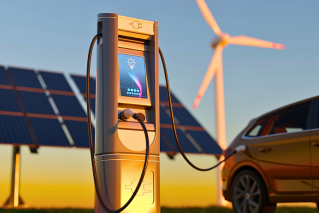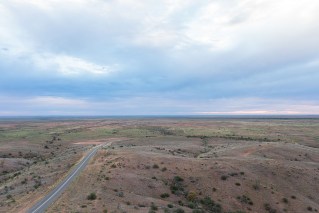Heatwaves in Europe, Asia and US give a scary taste of what’s to come

The heatwaves engulfing the northern hemisphere have brought soaring global temperatures and devastating weather events.
Associate Professor Sarah Perkins-Kirkpatrick is a senior lecturer at UNSW Canberra, and a chief investigator on the ARC Centre of Excellence for Climate Extremes.
She told The New Daily that while the heatwaves overseas should not come as a surprise, they are not normal.
It is summer in the northern hemisphere, so hot weather and heat are expected – and Europe, in particular, has had very hot summers in the past two decades. But this year, it is more concerning.
“These places have been absolutely obliterated by hot air, and not just hot air or hot weather, but the kind [that] hangs around for weeks at a time,” Professor Perkins-Kirkpatrick said on Tuesday.
“It’s the intensity and duration that’s really quite concerning.”
Extreme weather
Asia, Europe and the US are enduring extreme heatwaves, which in turn are leading to soaring global temperatures.
Just days ago, China had a temperature of 52.2 degrees in Xinjiang, its highest temperature on record.
Prolonged high temperatures in China are threatening power grids and crops, and raising fears of a repeat of last year’s drought, the most severe in 60 years.
A typhoon has recently hit southern parts of the country, leading to about 230,000 people in Guangdong province being evacuated with damage to homes and infrastructure.
In South Korea, 14 people died after a tunnel was inundated with flood waters.
At least 41 people across the country have died due to floods or landslides in recent days.
However, Professor Perkins-Kirkpatrick said one extreme weather event, such as a heatwave, was not always specifically related to another extreme weather event, like a typhoon.
“We do expect the weather to become more extreme under climate change and there are different processes controlling the tropical cyclone versus the heatwave in different parts of Asia,” she said.
In north-west Syria, displaced people living in camps are suffering in tents as temperatures soar to extreme levels, according to al-Jazeera.
In the south and west of the US, record heat has been observed, there has been wildfire smoke in the midwest and flood-triggering rain in the midwest.
In California’s Death Valley, temperatures soared to 53 degrees on Sunday, among the highest temperatures recorded anywhere in the world in the past 90 years.
Phoenix hit 45.5 degrees on Monday, matching a record of 18 straight days over 43 degrees. Weather forecasts show that record is likely to extend for at least another week.
Tweet from @metoffice
In Europe, millions of people across Italy are on “red alert” due to the sweltering conditions and are being advised to stay out of the sun during the day.
Greece’s Prime Minister Kyriakos Mitsotakis has warned more wildfires are likely to occur.
“Wildfires have occurred and will continue to occur. This is also one of the effects of the climate crisis that we are experiencing with increasing intensity,” he said at a summit in Brussels, according to the BBC.

Wildfires have been made worse by heatwaves in Greece. Photo: Getty
A ‘taste’ of what’s to come
Climate change is the driving force behind the heatwaves around the world, Professor Perkins-Kirkpatrick said.
The problem is, this is only the beginning.
“As a globe, as a planet, we’ve only warmed by just over 1.1 degrees Celsius.
“At best, given current pledges, we’re likely to warm by about 2.7 degrees, probably more if we’re brutally honest,” she said.
She said it wasn’t hard to imagine what things could be like when that extreme is reached.
She noted that places along the Mediterranean were warming at a faster rate than other parts of the world.
“This is definitely not the worst to come, it’s probably only a taste of it to be precise,” she said.

Americans braced for brutal conditions that may break records. Photo: Getty
Australians looking abroad might start worrying about what summer will be like here.
“Certainly, we can expect much warmer conditions [than] what we’ve had over the previous few years, and on top of that they will be supercharged by climate change,” Professor Perkins-Kirkpatrick said.
“Whether or not there’ll be our most extreme summer ever, which is what happening in other parts of the northern hemisphere, it’s too early to tell.”
Deadly conditions
Because Australians are used to hot summers, most people living here know to stay inside during a heatwave and keep hydrated.
However, not all countries or cultures have that knowledge or even the appropriate infrastructure. That will present a huge problem when climate change drives these extreme heatwaves in the future.
“A lot of places in Europe aren’t prepared to cope with this heat. They don’t have air-conditioning or they haven’t had the experience of this sort of intense heat before,” Professor Perkins-Kirkpatrick said.
“That’s why so many people died during the 2003 European heatwave, because they simply don’t have the behavioural capacity, or the adaptive capacity in their structures to keep cool.”








